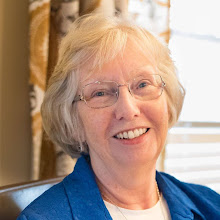The roots of the branches of my family go deep in West Virginia. Old Isaac Ballengee came to the banks of the Greenbrier and New Rivers in what is now West Virginia around 1782. The Amicks left Pennsylvania and spent some time in Pendleton County before settling in Nicholas County around 1820 or so. The Dorseys, Burdettes, Finks, and Boleys were all established in the Appalachian Mountains long before the western side of Virginia became a state in 1863.
Having been born and raised in West Virginia, I was astounded to find out all the things I did not know about Appalachian culture when I first attended Berea College, the supposed exemplar of everything Appalachian. The faculty, while learned and scholarly, arrived in Berea from other places to teach Appalachian culture to the students who actually lived in Appalachia. One of the more popularly known aspects of Appalachian culture taught at Berea was "country dancing". A student group known, not surprisingly, as the Country Dancers, is quite well known and travels extensively to perform traditional dance sets. I was intrigued by the Country Dancers and loved to watch their skillful performances, but part of the astonishment at the intricacies of their dances is that I, who had roots in Appalachia for generations, had never seen anything like that.
I'm willing to consider explanations, such as the fact that country dancing stemmed from British traditions, and my families were mostly German, as were many that settled in Appalachia. If you look up "contra dancing", another term used in connection with these traditional "Appalachian" dances, you will find that much of this dance tradition developed in New England, another explanation for why the average resident of Appalachia has no idea what country dancing is. An unlikely rationale is that I didn't know squat about Appalachian culture, and the people who came to Berea from New England and other places understood more correctly the way we lived in the mountains.
Those who have lived in Appalachia for a long time know that it's pronounced "Apple-atcha" as in, "I'm going to throw an apple atcha." Suspicions, as well as hackles, are raised when well-meaning folks say, "Appa-lay-cha". I know they think they are literate, bless their hearts, but the Appalachian region is not like Boston, Mr. Robert Kennedy, Jr., and I think we know how to say the name of the place where we live. People who like to protest the way we live should first educate themselves about how we use the language.
No matter which state they live in, the people in the Appalachian Mountains are bound together by history, religion, art, and food. Residents of the Appalachian Region share so much that it isn't beyond reason to think that Appalachian people, gathered together from the various states, could make a 51st state. People who come here from places like New England to protest on the steps of the capitol building in Charleston should first understand that fact. Richmond, the capital of Virginia, you see, is not in Appalachia.

People who live in this area are very close-aren't we?????? The pronunciation of Appalachian always raises an eyebrow or two doesn't it? Enjoyed your blog.
ReplyDeleteIt's just cause those "Northerna's" think they can put us in a box and study our movements. bah humbug.
ReplyDelete